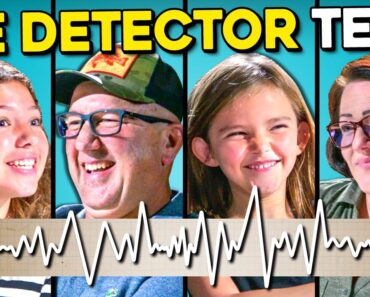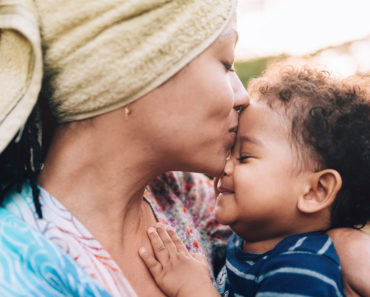Until the 1960s, the widely held belief was that if your child was autistic, you were a bad parent. Fortunately, things have changed since the days when “unfeeling parenting” and “refrigerator mothers” (cold, uncaring mothers) were thought to be the cause of autism. So, can autism be inherited? Let’s get into the details.
In 1964, American psychologist Bernard Rimland first challenged the notion that parents were to blame for their children’s autism diagnoses. He argued that biological factors might instead cause autism.
Since then, many studies have concluded that autism often runs in families. Family history and genetics play an important role in a child’s predisposition toward autism. In the 1970s, London’s Institute of Psychiatry found that more than one-third of 21 pairs of identical twins studied shared autism. And researchers at SickKids Hospital in Toronto recently led an international study that performed genetic sequencing on 11,000 participants and found 134 genes strongly linked to autism.
This doesn’t always mean that autism is inherited. Dr. Evdokia Anagnostou, Vice President of Research and child neurologist at Holland Bloorview Kids Rehabilitation Hospital and Director of the Bloorview Research Institute, states, “About one-half of genetic variations we find happen randomly at the time of conception.”
She notes there are “many autisms” and points to a current international initiative to develop autism biomarkers and identify sub-groups. This would mean that biological tests, such as brain and body imaging and blood tests, for example, might be able to identify which type of autism an individual has. This would be a major step forward in helping professionals develop optimal, personalized treatment plans for each child.
And in cases where autism is inherited, parents do not necessarily have to be autistic themselves. What is more often found within families are common traits. There can also be biological differences that lead family members to inherit different neurodevelopmental conditions. While one family member might be autistic, another might have ADHD, yet another might not have any disorder but exhibit certain neurodevelopmental characteristics.
There is — at least so far — no identified “autism gene.”
So are genes the main cause of Autism?
Genes play an important role but are not the only contributor to autism. Environmental factors — which are not the parents’ fault — may play a role as well:
These can include pregnancy and birth complications, including prematurity, the parents’ age, pregnancies less than one year apart, low birth weight and congenital heart disease. Remember, however, that while these factors increase the likelihood of autism, most children with these characteristics are not autistic.
Certain medical conditions like severe infections and diabetes during pregnancy can increase the risk of developing neurodevelopmental conditions.
And for parents with one biological child with autism, the chances of having another autistic child — or a child with a different neurodevelopmental disorder — are higher than for the general population.
There have been stories in the media and beliefs touted by certain celebrities that autism is caused by the measles, mumps and rubella (MMR) vaccine.
Most of these claims emanate from a 1998 study that was later found fraudulent. Study after study has shown no evidence of any linkage between autism and vaccines. As the Centers for Disease Control and Prevention makes clear:
Vaccines do not cause autism, and vaccine ingredients do not cause autism.
Please vaccinate your children!
What about genetic testing?
Genetic testing is often available to children who have been diagnosed with autism as well as additional features, such as congenital anomalies, craniofacial structural differences, learning disabilities or intellectual disabilities.
While any information we gain is beneficial, Dr. Melanie Penner, Senior Clinical Scientist and developmental pediatrician at Holland Bloorview and senior clinician scientist at Bloorview Research Institute, is empathetic to families who need time to process the diagnoses before deciding to undergo testing.
Two weeks ago, my son Andrew underwent genetic testing. The healthcare team took detailed developmental, medical and family histories from us, performed a physical examination and ordered two genetic blood tests:
Fragile X Syndrome: A change in the Fragile X Messenger Ribonucleoprotein (FMR1) gene on the X chromosome can cause autism, and intellectual and learning disabilities. It can also provide a genetic link to such physical characteristics as a long, narrow face, small chin, and flat feet.
I learned that until recently, Fragile X was the most common cause of severe intellectual disabilities and autism in males. Still, new research is finding that those with less severe symptomology can also carry a change in the FMR1 gene.
Microarray Analysis: This test examines whether a child has health conditions caused by a missing or extra piece of chromosomal material. These differences are often indicators of autism traits and certain psychiatric conditions.
More advanced technologies, such as whole genome sequencing, which determines an individual’s entire genetic makeup, are also available to families as part of research studies or if other signs are present. We eagerly await Andrew’s test results.
The work being done to identify the causes of autism further is exciting and rapidly evolving. Canadian organizations like DNAstack are leading a global data-sharing initiative to expand the development of an AI-powered software platform to accelerate discoveries in genomics and health.
DNAstack’s CEO Marc Fiume says, “This initiative breaks down the siloes that currently exist between organizations to unlock the full potential of data and leverage their collective power to make discoveries about autism and other neurodevelopmental disorders in a secure and privacy-preserving way.”
For parents, genetic testing can help explain the causes of our child’s autism and provide information about potential additional health conditions.
Testing is also increasingly guiding treatment, therapeutic and educational approaches. We need to become educated so we can partner with our children’s healthcare providers and open the door to the brightest futures we can give our children.
Get parenting news, expert advice, info on secret sales, discounts and the best-ever products. Sign up for the Today’s Parent newsletter.

































